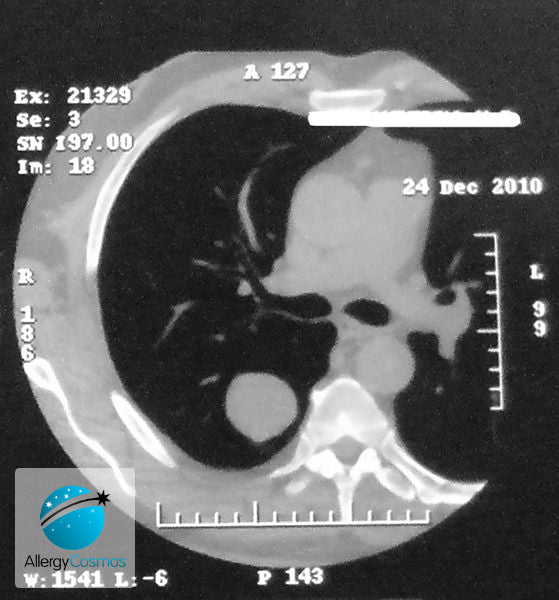Lung cancer is a leading cause of death, killing more people in the UK than breast, prostate and colon cancer combined. Cigarette smoke, exposure to second-hand smoke and asbestos are the main reasons for lung cancer. Symptoms of lung cancer are often ignored, and given the nature of this condition, the survival rates are poor, compared with other cancers.
What is lung cancer?
Cancer in solid organs like the liver, colon and lung arises from abnormal cells which clump together to form a tumour. When a tumour is in the lungs, it may be a primary tumour or a secondary tumour that has arisen from the spread of another primary cancer. This article talks about primary lung cancer and its causes. There are two types of lung cancer: small cell lung cancer and non-small cell lung cancer. The latter can be further sub-divided into various types including squamous cell and adenocarcinoma. These definitions are based on how the lung cancer cells look under the microscope.
What are the symptoms of lung cancer?
The main symptom of lung cancer is a cough which does not clear up or gets worse. Other symptoms of lung cancer include:
- Breathlessness
- Chest pain
- Unexplained weight loss
The symptoms of lung cancer and other lung conditions, including chronic obstructive pulmonary disease and even hay fever, can be hard to distinguish. Generally, there will be cause for concern on the lung cancer front if there are new or worsening, symptoms on top of an existing lung problem. Anyone who has a cough that does not go away in three weeks needs to check with their doctor – even if they are convinced that it is just ‘the end of a cold’.
What are the causes of lung cancer?
As most people are now aware, current – and past – smoking, is the leading cause of lung cancer. The risk increases with the number of cigarettes smoked and the length of time you have been smoking. On quitting, the risk starts to decrease. People who are exposed to second-hand smoke (also known as environmental tobacco smoke or passive smoking) also run an increased risk of lung cancer. While legislation has banned smoking in public places in the UK, there will still be cases coming through from exposures in early years as lung cancer, like many other cancers, can take many years to develop. Exposure to asbestos which should be rare nowadays, again because of legislation, is a less common cause of lung cancer. And some cases arise when the patient has never smoked or been exposed to asbestos (therefore, do not dismiss a persistent cough just because you have never smoked; it could still mean lung cancer, although this is unlikely – but it won’t hurt to get it checked out).
What treatment is available for lung cancer?
There are three treatment approaches in cancer:
- Surgery
- Radiotherapy
- Chemotherapy
What will be appropriate in a particular case depends upon the type and stage (extent of progression) of the disease. Surgery may be possible to remove a tumour or it may be located in such a place that surgery is not an option, in which case chemotherapy and/or radiotherapy may be recommended. Since lung cancer is so common, there is a lot of research into new treatments which may be more effective than those currently used.
What is the outlook in lung cancer?
The lung is a large organ and one that does not feel pain directly. So cancer often spreads before there are any obvious symptoms. As with all cancers, the later the stage, the less likely a cure is. The small cell lung cancers are generally more aggressive than the non-small cell type and are generally incurable. Having said that, even with incurable lung cancer, survival with a stable disease is possible, with good quality of life, with appropriate treatment and support.




